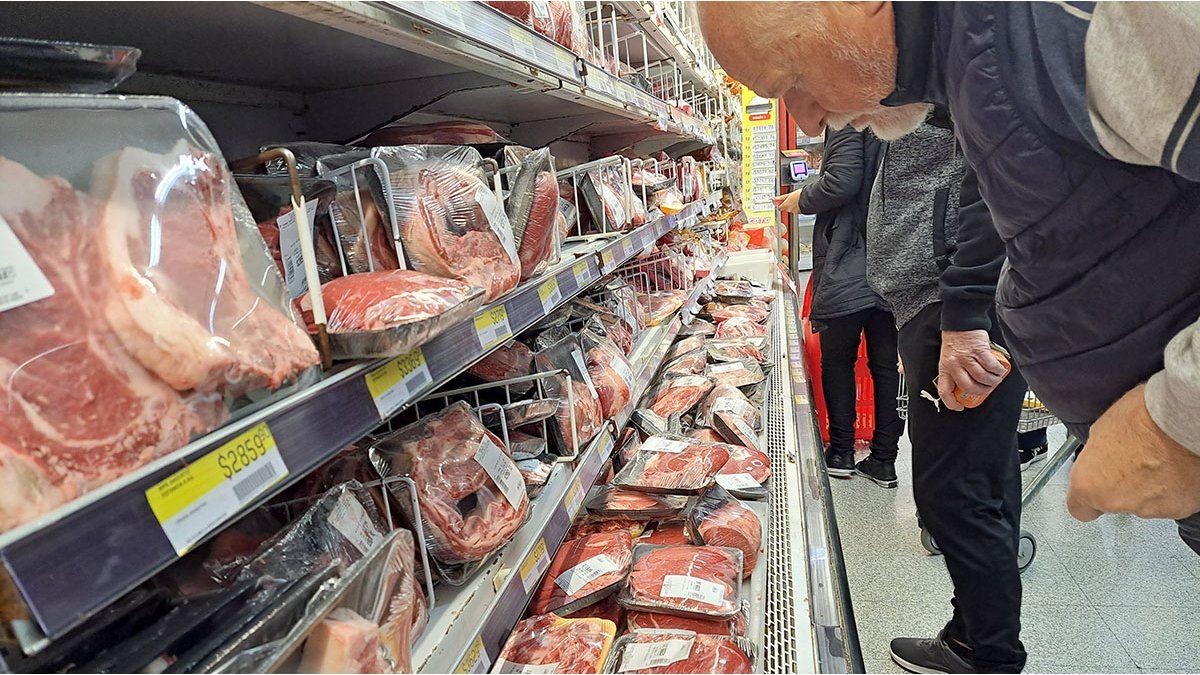In a context of strong highlights and a inflation increasingly higher, the price of meat captures the attention of consumers. Because it is a fundamental product for the basic basket, its evolution has a marked impact on the variation of the CPI. In fact, the category “meat and derivatives” was one of those that drove up inflation in Novemberrising 14.6% in the GBA (above the general variation in that region, which was 12.9%) and accumulate an increase of 198.4% year-on-year (compared to 161.2% of the general).
As happened with other essential items, in the first weeks of December the upward trend in meat accelerated. For example, according to the survey by the consulting firm LCG, Meats rose 6.4% in the first week of the month and 7.6% in the second.
Forward, Various factors push up the price of meat even more. On the one hand, in a week, cattle for slaughter increased around 35% in the Cañuelas market. At the moment, The kilo of roast is around $4,000 and $5,500in different supermarket chains.
According to sector analysts, if the current value of the property is maintainedthe roast could jump up to $7,000. But they see it as unlikely that this will happen, due to various factors: on the one hand, the current scarce supply of animals is due to the current economic situation; and, on the other hand, the lawsuit would not validate these amounts.
What can happen to the price of meat
By analyzing the current values of the farm and the impact it may have on the prices on the counter, the livestock consultant Victor Tonelli pointed to Ambit: “The finished farm for consumption reached $2,000 per kilo, it is a price that in my opinion is totally out of date with reality. and that has to do with the very low level of supply sent to the market these days. As in any other activity in the country, everyone stopped sales and deliveries based on expectations while waiting for the new Government measures.”
That is why the prices seen this week in the Cañuelas market, with a 35% increase compared to last week’s values“they do not reflect in any way a normal relationship of supply and demand”, said the analyst, who estimated: “While it is true that they are scary, I don’t see that they can be sustained at the moment.”
Meanwhile, when projecting how this increase could impact consumer prices, Tonelli pointed out: “Assuming that this value on the farm was to be consolidated, assuming that the livestock remains at these values, The price of the roast would end up close to $6,500 or $7,000. Not many more than that. I heard that some talk about $10,000, but it seems like a value that is out of reality.”
Meat Inflation Supermarkets Consumption
Meat boosted inflation in November and will also have a strong impact in December
Mariano Fuchila
“On the other hand, I do not believe that the absolutely liquefied power of the salary can validate those values. So, first I don’t think these prices will be sustained; and second, that if they were to consolidate, the market will not accept it. And when the market does not accept it, in a perishable product like meat, what is not sold today becomes ugly tomorrow, so it must be lowered.. I do not see these values being sustained: I believe that the price of cattle can stabilize between $1,400 and $1,600 per kilo, and that will lead to a value of the roast of $5,000. That is my perception regarding what may happen in the coming weeks,” Tonelli concluded.
Government meeting with the countryside
While, Yesterday, the Government ratified the project to increase withholdings on exports to representatives of the Argentine countryside. Furthermore, in relation to meat, he announced that restrictions on shipments abroad will be removed and prices in the domestic market will be “liberated.”
The Secretary of Bioeconomy, Fernando Vilella, had a meeting with the Liaison Table of the countryside, made up of Coninagro, Argentine Agrarian Federation (FAA), the Argentine Rural Society (SRA) and Argentine Rural Confederations (CRA). Also present was Mario Ravettino, president of the ABC Meat Export Consortium.
Vilella informed Ravettino that 15% withholdings will be applied to beef shipmentsand in turn pointed out that in 2024 the quotas and limitations that regulated foreign trade in the sector since April 2021 will no longer be in force.
Asked about the rise in prices in the local market, Ravettino considered that current values are high “due to the end of year holidays” and that they will tend to adjust downwards at the beginning of next year.
Source: Ambito




